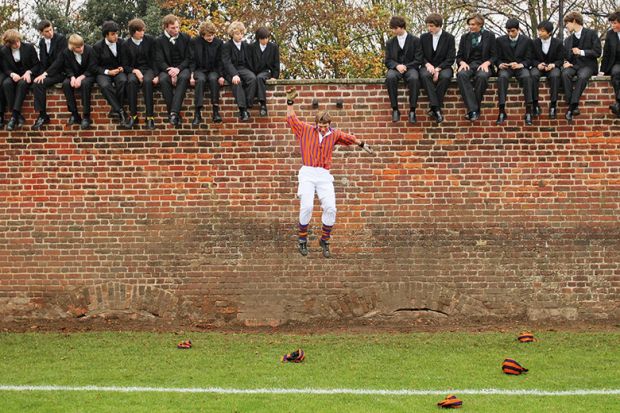Oxbridge admissions have (rightly) received a great deal of scrutiny lately. David Lammy’s investigation into the number of black or minority ethnic students attending Oxford and Cambridge has revealed stark inequalities in who gains entry to the UK’s elite universities. But would a shift in admissions really solve the problem?
Our recent paper – published in the American Sociological Review – suggests that admissions are only half the story. This focus on access is rooted in an implicit assumption that once people “get in”, these elite universities act as meritocratic sorting houses, propelling all graduates equally. Yet our analysis strongly challenges this view.
We show that Oxbridge has long provided the greatest rewards to those who arrive from particular schools.
Our analysis examines the entire 120-year historical database of Who’s Who, which contains detailed biographical information on about 120,000 “influential and noteworthy” individuals. Unlike elite definitions such as the 1 per cent, Who’s Who entrants span multiple fields. Some are included automatically upon reaching a prominent position – such as MPs, judges, senior civil servants and heads of public bodies or large arts organisations – while others are selected by advisers.
Oxbridge graduates have always comprised a substantial proportion (30 to 40 per cent) of the people in Who’s Who. Yet, despite this stability, the role that Oxbridge has played in shaping elite trajectories has changed in important ways over time.
At the beginning of the 20th century, for example, the singular power of attending an elite male-only school significantly outweighed the singular power of attending the University of Oxford or the University of Cambridge. Specifically those who attended one of the nine elite “Clarendon schools”, which include Eton, Harrow, Rugby, St Paul’s and Westminster, but did not then go on to Oxbridge were more likely to be included in Who’s Who than those who attended Oxbridge (and a non-elite school).
However, among the current entrants of Who’s Who, this has changed. The force of both these elite channels has declined somewhat, suggesting that elites are more frequently drawn from other schools and universities. But significantly, the sharpest decline has been among Clarendon school alumni who did not go on to Oxbridge. These “old boys” are no longer able to trade off the name of their school in quite the same way as they might have been able to in the past, and they have been eclipsed by Oxbridge graduates (from non-elite schools) who now have a much greater chance of reaching the elite.
The most effective institutions in oiling elite trajectories, then, have shifted from schools to universities.
However, the power of elite pathways that start at school and are then augmented at university remain very powerful indeed. Even today, Oxbridge graduates who attended a Clarendon school are twice as likely to reach the most elite positions compared with Oxbridge graduates from non-fee-paying schools.
This remarkable finding underlines the limits of the fair access agenda and the importance of understanding the cumulative advantages that flow from following particular pathways. We know that elite universities act as incubators of social and cultural capital that has lasting effects on occupational outcomes. But elite universities are not monolithic, and treating them as such masks their potential duality, whereby individuals entering from specific places – such as elite secondary schools – may be better situated to take advantage of opportunities once inside.
One has only to think about the enduring connection between elite schools and key Oxbridge clubs such as the Footlights, the Cambridge Apostles and the Bullingdon Club to see such elite channels in action.
More diversity at Oxbridge is, of course, hugely important. These universities clearly act as elite switchboards for all, regardless of race, class, gender, disability or sexuality. But it is important to remember that their propulsive power is greatly enhanced if one is doubly consecrated by attending an elite private school. In this way, it seems that there remain two distinct trajectories through the UK’s elite universities: one for old boys and one for everyone else.
Sam Friedman is a sociologist at the London School of Economics and Political Science, and Aaron Reeves is an associate professorial research fellow in poverty and inequality at the International Inequalities Institute, also at the LSE. This article draws on a co-authored article, published in the American Sociological Review. An open access version of the paper is available here.
Register to continue
Why register?
- Registration is free and only takes a moment
- Once registered, you can read 3 articles a month
- Sign up for our newsletter
Subscribe
Or subscribe for unlimited access to:
- Unlimited access to news, views, insights & reviews
- Digital editions
- Digital access to THE’s university and college rankings analysis
Already registered or a current subscriber? Login







